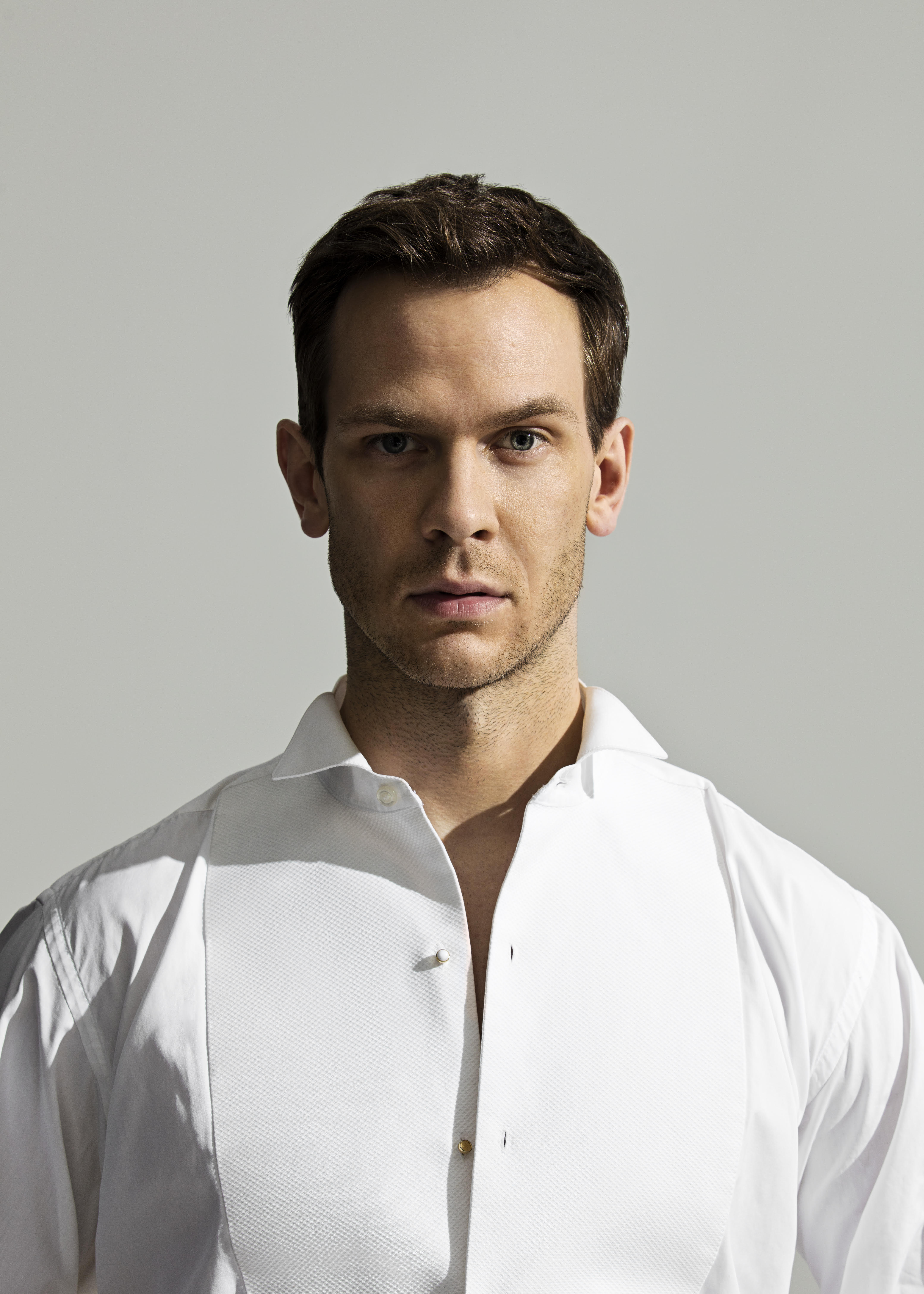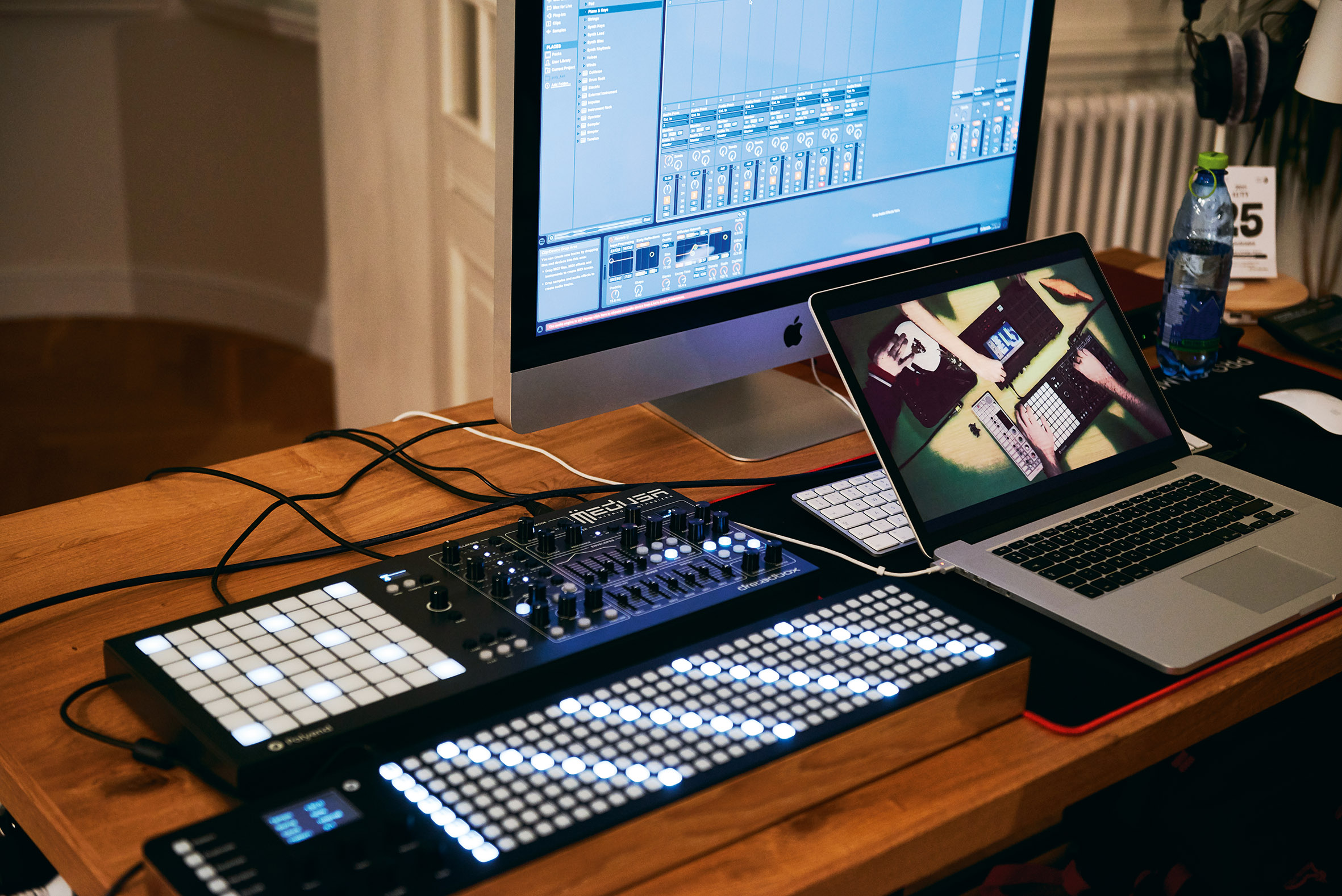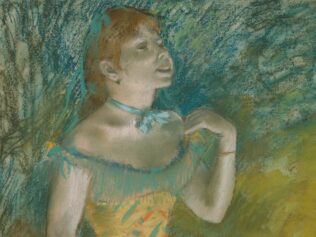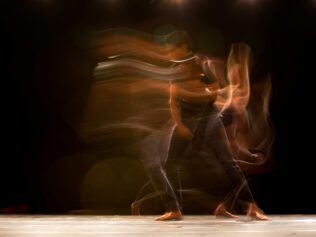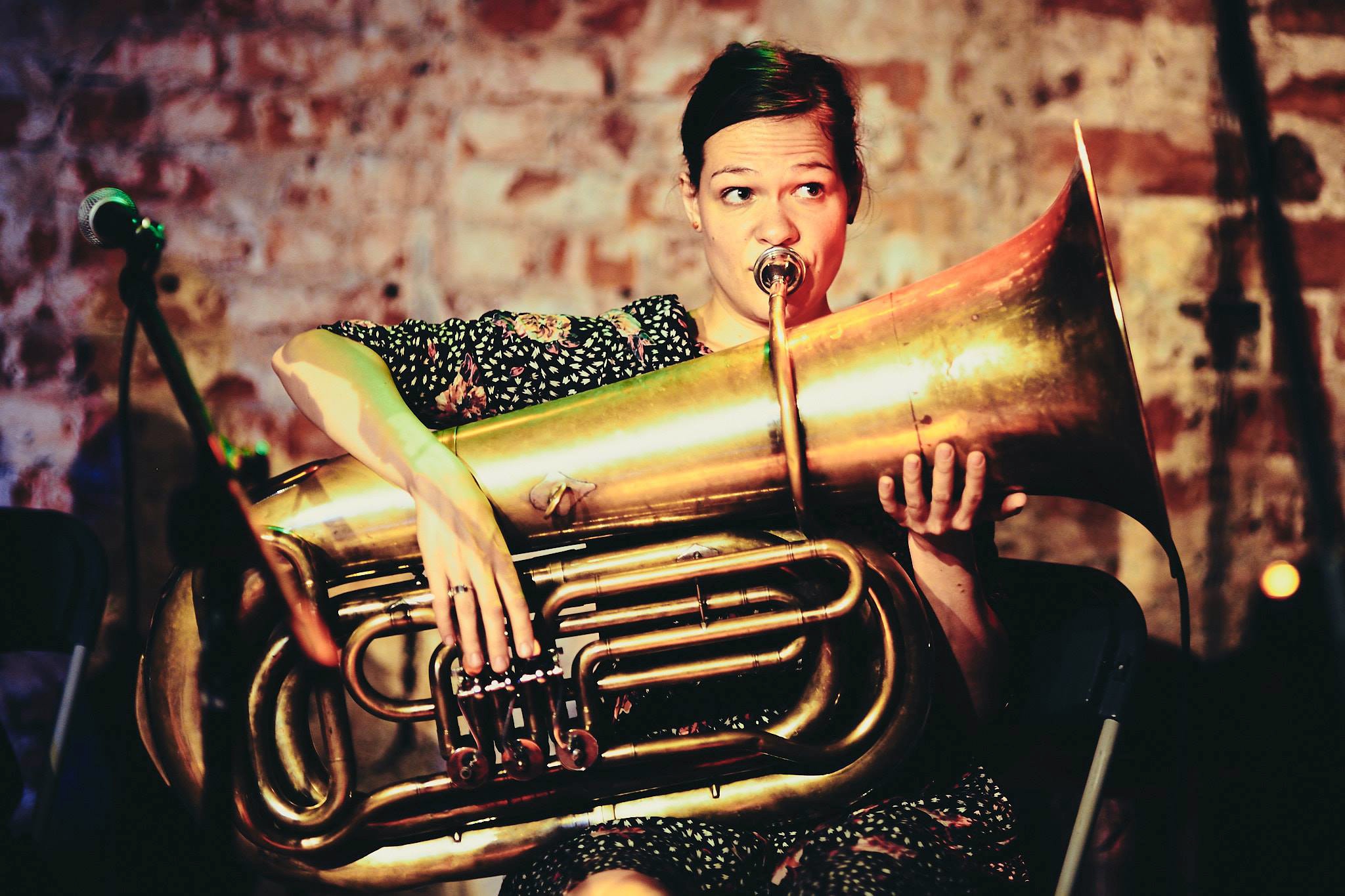
One of the most talented Polish opera singers, Szymon Komasa, doesn’t hide his emotions while speaking with me. Emotions are crucial in his job and he emanates faith in the fact that art can change our lives for the better. He comes from an artistic family (his mother Gina and sisters Maria and Zofia are singers; his father Wiesław is an actor; and his brother Jan is a film director) and, at the same time, is part of international family – that of art. He talks humbly and with love about those from whom he learns. We will surely hear more about him soon.
Agnieszka Drotkiewicz: Four years ago, you created the character of Hans Castorp in Paweł Mykietyn’s The Magic Mountain, to the libretto by Małgorzata Sikorska-Miszczuk. When I asked Andrzej Chyra – who directed this beautiful spectacle – about you, he texted me: “Szymek has the magnetism and acting potential necessary today on the opera stage. When he needs to, he can delve deep into the character; he can discipline himself, but is not overly rigorous. This, in my opinion, is the feature of a great talent. He has enormous emotional range and a sensitive imagination. Everyone likes him and so they bother him during rehearsals, but if necessary, he is able shake them off – as if insects craving sweetness, drawn to honeycomb… He was a vision as Hans. I would love to work with him again.”
Szymon Komasa: Wow! I have the impression that when I met with Andrzej, I wasn’t 100% ready for this meeting yet, he intimidated me and seemed inaccessible – I remembered how impressed I was by his role in the film The Debt. I was embarrassed. During the rehearsals for The Magic Mountain, Chyra, a star, was preparing for a role at the Paris Odéon alongside Isabelle Huppert. I was very young – the role of Hans was something huge at the time. Sometimes, when Andrzej showed me at a rehearsal what he wanted to get out of me, I thought it was completely impossible. I’d return to my hotel from rehearsals and I’d cry – the kind of truth he had in his eyes brought tears to my eyes. This was the scale of the message, completely natural to him. I am very much waiting for another part from Andrzej, one that we will have a lot of time for, so that I can devote myself like plasticine to my work and his instructions. I trust that we will meet again at work, because I feel that we can definitely create something together; that our work together is not yet finished.
The tempo of The Magic Mountain was hugely impressive – I won’t forget the scene where Hans unties his scarf when he arrives at Berghof. It went on forever – a very, very slow movement. Alongside the music, it created an incredible tension.
That performance was ahead of its era, because the era was not ready for it. The opera circles always say that you need to look for something new, and when the new comes, they are terribly afraid of it.
And anyway, in the beginning, when I first got the invitation to play the role of Hans, I wasn’t convinced at all. At the time, I was studying in New York, a lot was going on artistically, in and outside of my school. Then Paweł Mykietyn sent me the score of The Magic Mountain, suggesting me for the role of Hans. At first I said that I do not perform such music, that even my body is not able to accept it. But we kept talking, and I told Paweł that I would agree if he gave me an aria that had the atmosphere of a scene from Tom Tykwer’s Heaven – the one where Cate Blanchett and Giovanni Ribisi ride together on a train, after he helps her escape from prison. She tells him that she does not even know his name, he tells her when he was born, and she remembers that day very well – the day of her first communion. The moving train, off-screen dialogue, seemingly nothing is happening, and yet there is everything in it. And Paweł wrote me such an aria, Hans’ Lament, which I also recorded on my first album, Polish Love Story.
The pace of The Magic Mountain is indeed very interesting – at first you get the impression that nothing is happening, but when its image emerges, the viewer is stunned by what they are witnessing. To this day, for many people this is one of the most important performances they have ever seen.
Do you believe in master classes? There is a recording on YouTube of a master class with Joyce DiDonato, in which you sing Bellini – from the time when you studied at Juilliard.
Joyce is a great artist; when I think ‘artist’, she always comes to mind. We are always in touch, I shared with her my work on the Polish Love Story album, and she is an important figure to me.
When it comes to opera singers, there are two routes. There are those who are natural-born singers who have had a voice and singing technique since childhood. If they are also intelligent, they can achieve great things. But there are also those whose way in into singing was very laborious, technical, with many obstacles along the way – they had to learn and understand a lot. A master class with such a person makes great sense, because they know – almost anatomically – what they are talking about; they know the name of each bone that might be blocking your singing voice. And anyway, I love enthusiasts and master classes, not only in the field of voice, but also in film…
Stephen Wadsworth wrote a part in The Flood especially for you.
Stephen worked with me in New York at Juilliard, and when we finished class he said he would write something for me someday. He is the author of the libretto for A Quiet Place, the last opera by Leonard Bernstein; he also facilitated the staging of King Roger with Mariusz Kwietnia in Santa Fe. I didn’t take his words entirely seriously, people often say things… and if one in ten comes true, that’s amazing. Three years later, he had this role ready for me – I agreed immediately. I rejected all other offers at that time. In the musical layer, this opera is not as developed as The Magic Mountain. Contemporary American music differs from contemporary European music – it is not as sophisticated, it is more similar to a musical. But the story itself, the character I play, is very difficult. He is a schizophrenic, and as a result of his actions, three of his children drown. In the first act, he plays chess with the fourth child, his surviving daughter. I had to turn this game of chess into something of a thriller. Finally, my hero commits suicide in front of this daughter, he shoots himself in the head. It was two months of intensive work; I didn’t have a single day off, except on Sundays, when we always went to the cinema with the director (it was around the time of the Oscars). Anyway, since I lived in New York, cinema has been my second home. The opera was a great huge success – to the extent that it will now be played on Broadway. It was included among the ten best performances of the season; my performance was among the ten best opera performances of the season. But I decided to say goodbye to it, because I paid a great price. At one point, my hero begins to realize that he caused his children’s death, begins to call their names in a room he has demolished, the fourth child escaped, he is left there alone… To enter this nightmare each evening, it was very hard. On the other hand, the reception of this opera was very strong – the audience sobbed, and after the performances many people came to me to talk. They opened up completely; they said that their father was ill too, that he had bipolar disorder, that they couldn’t understand it at the time. It was important and although hard for me, I was glad that I could give something to these people, that I could be part of something this important.
I am very grateful to opera performers because their singing helps me name certain feelings, reflect their multitude and express them. Singing can be more emotionally capacious than words.
For me, an opera singer who opens up a completely different universe is Lorraine Hunt Lieberson, an extremely intelligent singer. In art, it is important to be aware that it is you who serves the art. When I look at my brother, a filmmaker, he never says that what he does is something great. When he made Corpus Christi, he was serving his art from start to finish; he knew he had to make this movie. Isn’t that fantastic?
And my father always told me that he was jealous of opera singers, because actors have to find music and melody in words and that is terribly burdensome. I answered that I was jealous of him being able to speak a text that is honest, while singers sometimes hide in order to bring out the most beautiful sounds to accompany given feelings. I would love to be an artist who combines both – the power of music and words.
When you talked about saying goodbye to the part, I thought about how important it is in your profession to be able to say no.
Yes, the ability to say no has a great impact on your entire life, because every role can teach you a lot, but can also be your last if chosen incorrectly. Because of this, it is important to work with people who know your voice, people whom you can trust. Sure, there are offers that are extremely tempting, but if it is not the right time, it is better to refuse. It is better to trust that this offer will come back at the right moment, to be glad that it has come at all – keep the e-mail and re-read it when you are down.
You recorded Polish Love Story in Lusławice, at the Krzysztof Penderecki European Music Centre, right next to his famous garden, the arboretum. It must have been the perfect location to record love songs, such an intimate genre?
It is a wonderful place, perfect for concentration. I think that this album would not have been created if it weren’t for Lusławice. Places are of great importance to me. We were actually supposed to record this album in London, I’d have been able to boast that I recorded in the same famous studio as the Beatles… But I fought for Lusławice, which was not easy, because this is where the best of the best come to record; it is a coveted music centre. I did not give up! I sent text messages to Elżbieta Penderecka every other day. It worked, Elżbieta and Krzysztof Penderecki gave us the use of the studio for the whole week. Normally, a CD is recorded in three or four days, so we had this extra time, we had all week. We lived, ate and recorded there. It was a fantastic, beautiful time; the first week of August. We went to their garden every day, which is insanely beautiful! Once you enter it, you are in a different reality – a miniature Versailles here, an English garden there, a bit of Agnieszka Holland and her Secret Garden…
And the album, Polish Love Story, is also such a composition, a bouquet, so to speak: Moniuszko, Chopin, Bacewicz and Lutosławski.
This is a cross-section of 200 years of music. The point is to tell a story, not to shock with the juxtaposition of Chopin and Mykietyn. In any case, they go together well because they both have this combination of sadness and positivity.
Will you sing a different repertoire at your recital today [17th October 2019 – ed. note] at the Studio Theatre in Warsaw?
This recital is entitled Portrait – I wanted it to be a journey. As I said, places are very important to me: where I live, where I work and spend my free time… Despite the fact that I’ve never been to Russia, Russian composers represent a part of my soul, so I will sing their songs. There will also be English and American composers; also Poulenc. I composed this programme so that it was a programme of a classical opera singer, but not boring in the slightest. The songs are short. Apart from Mahler, none lasts longer than three minutes, and their order is also important to me. I start with Rachmaninoff, I finish with a classic, a meeting with a classic, a legend: Schubert’s “Erlkönig”. So we have a cross-section of twenty-four songs, some of them are true legends. I am convinced that the tension will not drop and nobody will look at their watch.
Parts of this interview have been edited and condensed for clarity and brevity.
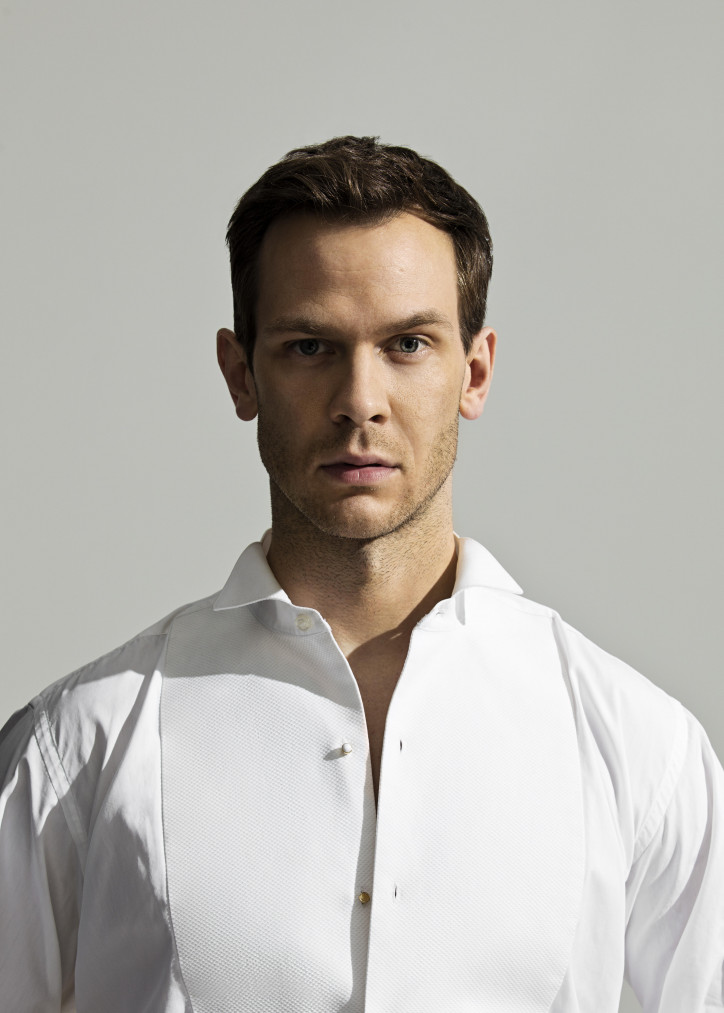
Szymon Komasa:
Baritone, one of the most talented Polish opera singers. He studied in Łódź (at the Grażyna and Kiejstut Bacewicz Academy of Music), London (Guildhall School of Music and Drama) and New York (Juilliard School of Music). He made his debut as Schaunard in La Boheme at the Teatro Filharmonico / Arena di Verona in Italy (2009). He has performed recitals at Carnegie Hall in New York (2012) and Wigmore Hall in London (2012). He sings both classical and contemporary opera parts. In 2019, he signed a contract with Warner Classics to record four solo albums.
Translated from the Polish by Joanna Figiel


